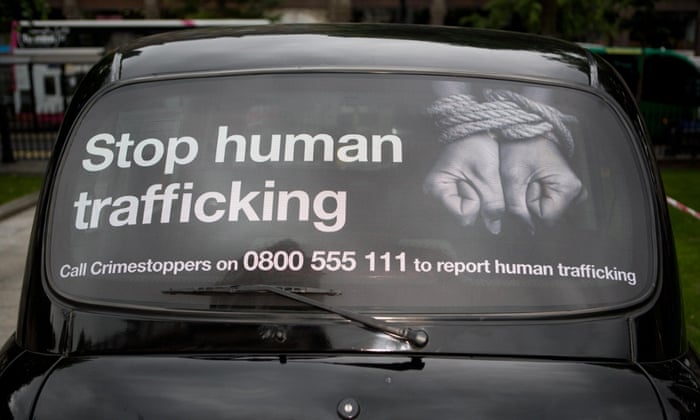Human traffickers may face life imprisonment under a British law passed designed to crack down on modern-day slavery, one of a raft of measures designed to lead the way in combating the $150bn-a-year industry.
With an estimated 13,000 victims of forced labour, sexual exploitation and domestic servitude in Britain, the government has come under pressure to act before parliament is dissolved ahead of May’s general election.
The modern slavery bill, passed this week, increases the maximum jail sentence for traffickers to life – it was previously 14 years – and allows the authorities to seize traffickers’ assets and force them to pay compensation to their victims.
It also brings in measures to protect people feared at risk of being enslaved and requires businesses to disclose what action they have taken to ensure their supply chains are free of slave labour.
The law was passed amid concerns that not enough is being done to stop slavery, with estimates that as many as 36 million people worldwide are being used, bought, sold or transported for exploitation.
The British government said it was fitting for the bill to be passed on the UN day of remembrance for victims of slavery.
“This momentous piece of legislation, which has been shaped and reformed and improved so much by all parts of this House … [will] give the protection to the victims who need it and … ensure the perpetrators can practise their crimes no more,” Home Office minister Lord Bates told the upper chamber of parliament.
Several other countries have introduced life imprisonment for human traffickers, but Britain’s home secretary has said the UK legislation will be among the first of its kind.
Campaigners working on issues as diverse as child exploitation and supply chain transparency welcomed the modern slavery bill.
But groups working to improve domestic workers’ rights were dismayed that an amendment to stop foreign domestic workers from being tied to one employer failed to become law.
Instead, the National Referral Mechanism, a body established to identify trafficking victims, will grant a six-month visa to migrant domestic workers that it finds have been trafficked.
The tied-visa policy, introduced in 2012 as part of Britain’s clampdown on immigration, leaves migrant domestic workers either unable to change employer if they are abused, or undocumented and at further risk of exploitation if they quit, campaigners said.
“It’s a lost opportunity that the modern slavery bill will not protect domestic workers by allowing a change of employer. The fight for justice continues,” Kalayaan, a group campaigning for the rights of domestic workers, said.
The Home Office estimates there were up to 13,000 victims of slavery in Britain in 2013, most of them from Albania, Nigeria, Vietnam and Romania.
